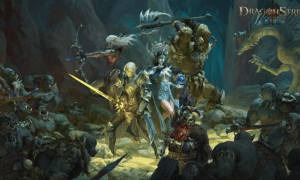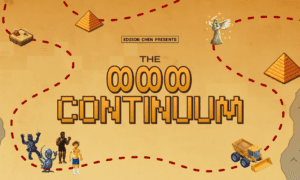In an era dominated by digital distractions, classic games such as chess, checkers, and learning to play solitaire maintain a special place in our cultural and educational landscapes. These games, rooted deeply in history, are not just relics of past entertainment but are powerful tools for cognitive development and social interaction. This article explores how these timeless activities can be effectively introduced to today’s youth, ensuring that they continue to be enjoyed and valued by new generations.
Classic games offer a unique blend of simplicity and complexity, making them accessible yet challenging. They provide a break from the fast-paced, multimedia stimuli that characterize modern entertainment options, encouraging deeper thought and concentration. By reintroducing these games to children and teenagers, we not only offer them the joys of gameplay but also impart important life skills such as strategic thinking, patience, and the ability to anticipate consequences.
The goal of this article is to provide parents, educators, and mentors with comprehensive strategies to make classic games appealing to the younger crowd. From selecting the right games to modernizing their play through digital tools, this guide will cover the essentials to help bridge the gap between traditional pastimes and contemporary interests.
The Appeal of Classic Games
Classic games have stood the test of time, not just because they are entertaining, but because they offer layers of benefits that modern games often fail to provide. At their core, these games are simple enough for anyone to grasp, yet they offer endless possibilities for strategic depth, making them perennially engaging.
Cognitive Benefits
Playing classic games like chess, checkers, and solitaire can significantly enhance cognitive abilities. These games require players to think critically, plan ahead, and anticipate the moves of their opponents. Here’s how they specifically contribute to cognitive development:
- Problem-solving: Engaging in these games teaches problem-solving by requiring players to evaluate multiple scenarios and make strategic decisions.
- Memory and Concentration: Games like chess involve remembering past moves and anticipating future ones, which can greatly improve memory and concentration.
- Pattern Recognition: Many classic games involve recognizing patterns, which is a critical skill in many academic and professional areas.
Social Benefits
Beyond cognitive skills, classic games also foster important social interactions and emotional intelligence:
- Interpersonal Skills: Games that involve multiple players encourage communication and cooperation among participants.
- Emotional Resilience: Learning to deal with wins and losses in games can help children manage emotions and develop resilience.
- Cultural Connectivity: Many games have cultural stories and histories attached to them, providing a medium through which players can connect with different cultures and traditions.
Simplicity and Accessibility
One of the greatest appeals of classic games is their simplicity and ease of access. Most classic games require minimal equipment, can be played anywhere, and their rules are easy to understand but hard to master, making them widely accessible and appealing across ages and cultures.
- Universal Design: The design of these games is often straightforward, which means that new players can join in quickly.
- Cost-Effectiveness: Unlike many modern games that require expensive equipment, most classic games are inexpensive and offer a high return on investment in terms of entertainment and educational value.
Why Teach Classic Games to Youth?
Introducing classic games to young people is not just about keeping these games alive; it’s about leveraging their intrinsic benefits to aid in the development of critical life skills. Here are some key reasons why classic games should be part of youth education and recreation:
Cognitive and Social Development
Classic games are more than mere entertainment; they are potent tools for cognitive and social development.
- Cognitive Skills: Games like chess and solitaire promote critical thinking, strategy planning, and logical reasoning. These skills are transferable to academic subjects, enhancing problem-solving capabilities and analytical thinking.
- Social Interaction: Many classic games require direct interaction, which can help improve verbal and non-verbal communication skills. They encourage teamwork and cooperation, especially in games that involve multiple players or teams.
Educational Value
Classic games often serve as practical applications of mathematical and probability theories, making them valuable educational tools.
- Mathematical Concepts: Games like checkers and chess involve calculations and pattern recognition, offering a fun way to apply math skills.
- Historical Insight: Teaching games like Go and backgammon can also provide insights into the history and culture of different civilizations, enriching the educational experience.
Building Life Skills
The structured nature of classic games helps in building discipline and patience, skills that are essential for personal development.
- Patience and Discipline: Waiting for one’s turn and following complex game rules can cultivate patience and discipline among young players.
- Strategic Planning and Foresight: Learning to think ahead and plan for future actions is crucial not just in games but in real life.
Preserving Cultural Heritage
Many classic games are part of cultural traditions and heritage, offering a window into the past and a way to keep cultural stories alive.
- Cultural Appreciation: Through games, young people can connect with cultural narratives that have been passed down through generations.
- Inter-generational Bonding: Playing games that parents and grandparents played can strengthen family ties, providing shared experiences and stories.
Modern Relevance
Incorporating modern technology with classic games can make them more appealing to today’s digital natives, ensuring their relevance continues.
- Digital Adaptations: Many classic games have digital versions, which can attract tech-savvy young people.
- Hybrid Learning Environments: Combining online resources and traditional gameplay can create hybrid learning environments that resonate with modern educational practices.
Strategies for Introducing Classic Games
Introducing classic games to a new generation involves thoughtful consideration of how these games can be made relevant and engaging in today’s digital world. Here are some effective strategies to ensure that the charm and benefits of classic games captivate young minds.
Choosing the Right Games
Selecting appropriate games is crucial to ensure engagement and learning. Consider the age, interests, and skill levels of the young players when choosing games.
- Age Appropriateness: Younger children might enjoy simpler games such as “Snakes and Ladders” which teaches basic counting, while older children can handle more complex games like chess, which requires and develops higher thinking skills.
- Interests Alignment: If a child is interested in history, introduce them to games like “Go,” which has rich historical roots. If they like puzzles, chess or solitaire might be appealing.
Modernizing Gameplay
To appeal to a generation that is used to digital interfaces, modernizing the gameplay of classic games can be a winning strategy.
- Digital Platforms: Utilize apps and online games that simulate classic games, offering interactive tutorials and the ability to play against opponents from around the world.
- Augmented Reality (AR): AR versions of classic games can make the physical elements of the game interactive, which adds an exciting layer to the gaming experience.
Creating a Social Experience
Making game learning and playing a social experience can greatly enhance the appeal.
- Family Game Nights: Regularly scheduled family game nights can help ingrain the habit of playing and enjoying games together.
- School Clubs and Competitions: Encourage schools to form game clubs or host game tournaments. This not only makes playing these games fun but also builds a community of players.
Educational Integration
Integrating classic games into educational settings can help highlight their learning benefits.
- Curriculum Inclusion: Schools can include classic games in their curriculum to teach a variety of academic and life skills.
- Workshops and Seminars: Organize workshops that focus on the strategic aspects of games like chess, promoting them not just as games but as tools for learning and development.
Leveraging Technology
Using technology not only to play games but also to teach and discuss them can make classic games more accessible and engaging.
- Online Tutorials and Courses: Offer online courses or tutorials that teach how to play these games, which can be accessed by young people from their homes.
- Interactive Learning Tools: Use software that allows for the simulation of games, providing feedback and enabling players to learn from their mistakes without the need for a human opponent.
Tips for Teaching Classic Games to New Players
Teaching classic games to a new generation requires more than just an understanding of the rules; it demands creativity and patience to engage players who might be accustomed to more visually stimulating, fast-paced games. Here are some effective methods for teaching these timeless games:
Simplifying the Rules
Start by introducing the basic concepts and rules of the game in a clear and concise manner.
- Gradual Learning: Begin with the most fundamental rules and add more complex ones as the learner’s confidence grows. For example, in chess, start by teaching how each piece moves before introducing strategies.
- Visual Aids: Use diagrams and videos to demonstrate game setups and moves. Visuals can be particularly helpful in understanding games like solitaire or chess.
Interactive Learning
Leverage technology and interactive methods to make learning more engaging.
- Digital Tools: Use apps that offer step-by-step tutorials and the ability to play against computer opponents, which can be helpful for beginners to practice skills without the pressure of a human opponent.
- Practice Games: Encourage regular practice through friendly games where the focus is on learning and enjoyment rather than competition.
Engaging Teaching Methods
Keep the teaching sessions lively and interactive to maintain interest.
- Question and Answer Sessions: After explaining a game, have a Q&A session where learners can clarify doubts and explore different game scenarios.
- Hands-on Practice: Allow learners to play short games or specific scenarios to apply what they’ve learned directly. This approach is especially useful in games like checkers or solitaire, where strategic moves can be isolated and practiced.
Encouragement and Feedback
Provide positive reinforcement and constructive feedback to encourage continued learning and improvement.
- Positive Reinforcement: Celebrate achievements, no matter how small, to boost confidence and motivation.
- Constructive Feedback: Offer suggestions for improvement in a supportive manner, helping learners understand mistakes and learn from them.
Conclusion
Classic games such as chess, checkers, and solitaire have been cherished for generations, not only for their entertainment value but also for the profound cognitive, social, and cultural benefits they offer. As we look to introduce these timeless games to a new generation, it’s crucial to adapt our approaches to align with modern interests and learning styles.



































